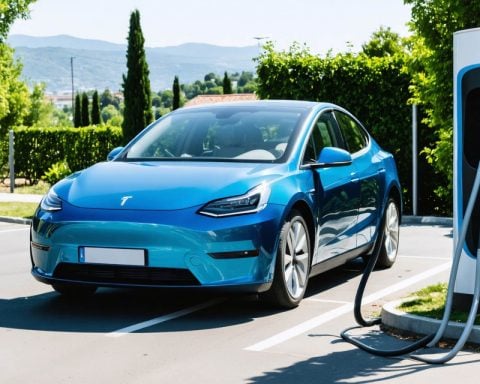Vale (NYSE:VALE) is rethinking its approach to nickel production. The mining powerhouse has initiated a strategic assessment that may result in the sale of its mining and exploration operations in Thompson, Manitoba. This site is significant, containing two underground mines, a processing mill, and vast exploration prospects along the 135-kilometer Thompson Nickel Belt, an established nickel source since 1956. The review is set to conclude in the latter half of 2025, indicating a potential shift in Vale’s focus towards enhancing copper production in Brazil’s Carajas region.
Despite reporting an output of 10,500 metric tons of finished nickel in the past year, the Thompson site may no longer align with Vale’s future strategy. In 2021, the company made a notable investment of C$150 million to prolong its Canadian mining activities; however, it is now reconsidering if it’s time to let go of Thompson. The potential divestiture is expected to create waves in the nickel market, particularly amid rising demand for battery metals.
The pivotal question remains: Can a new operator harness the full potential of this important asset? Investors should monitor these developments closely, as nickel plays a crucial role in electric vehicle batteries. If a financially strong buyer emerges, Thompson could greatly contribute to North America’s electric vehicle supply chain. Expect increased activity as Vale approaches a conclusion.
Strategic Shifts in Nickel Production: Broader Implications
Vale’s strategic reassessment of its nickel operations in Manitoba signals more than a mere tactical adjustment; it hints at significant ramifications for global markets and environmental sustainability. As nickel is a critical component in the production of lithium-ion batteries, particularly for electric vehicles (EVs), the potential sale could reshape the supply chain landscape in North America.
The growing focus on EVs reflects a broader cultural shift towards sustainability and green energy. In 2022 alone, global EV sales reached 10.5 million units, underscoring a staggering growth trajectory and escalating demand for materials like nickel. Vale’s pivot could either disrupt or catalyze movement in this sector, depending on the capabilities of prospective new operators. A strong buyer could enhance operational efficiency and increase nickel output, directly benefiting the burgeoning EV market.
Moreover, the environmental implications of mining activities remain paramount. Vale’s re-evaluation may lead to heightened scrutiny of not just operational practices but also the environmental policies governing nickel mining. As both consumers and regulators push for sustainable sourcing, any advancements in eco-friendly mining practices by a new operator could set benchmarks across the industry.
Looking ahead, long-term trends indicate that this assessment may also open the door for technological innovations in extraction and processing, potentially leading to more sustainable practices in mining. The implications are clear: as Vale reassesses its strategies, both the global economy and environmental sustainability efforts stand at a critical juncture, poised for transformation.
Vale’s Strategic Shift: What It Means for the Nickel Market and Electric Vehicles
Vale Rethinks Nickel Production Strategy
Vale S.A. (NYSE: VALE) is currently undergoing a significant strategic assessment of its nickel production operations, potentially leading to the sale of its mining and exploration assets located in Thompson, Manitoba. This facility holds critical importance in the nickel market, boasting two underground mines, a processing mill, and extensive exploration potential within the renowned Thompson Nickel Belt, an area that has served as a nickel source since 1956.
Current Nickel Production Landscape
In the past year, Vale reported an output of 10,500 metric tons of finished nickel. Despite this production level, the Thompson site may not align with Vale’s evolving focus on enhancing copper production in Brazil’s Carajás region. The announcement of this strategic review, expected to conclude in the latter half of 2025, highlights Vale’s shift in priorities and suggests a potential pivot away from nickel-focused operations.
Pros and Cons of Divestiture
Pros:
– Financial Gains: Selling the Thompson operations could free up capital for investment in more strategic areas, such as copper production.
– Market Influence: A new operator may bring innovative practices, potentially increasing the operational efficiency and market output.
Cons:
– Supply Chain Uncertainty: It may create disruptions in the nickel supply, which is crucial for electric vehicle (EV) batteries at a time when demand is surging.
– Impact on Workforce: The divestiture could affect local employment in the Thompson area, raising concerns over the economic implications for the community.
The Role of Nickel in the Electric Vehicle Market
Nickel is a vital component in making batteries for electric vehicles, and the increasing reliance on EVs has led to a heightened demand for nickel. Investors and stakeholders should watch closely as developments unfold regarding the Thompson site. If a financially capable buyer steps in, the potential for Thompson to significantly contribute to North America’s EV supply chain could materialize.
Market Analysis: Nickel Demand Trends
Current trends show an aggressive escalation in demand for battery metals, driven largely by the global shift towards renewable energy and electric mobility. The International Energy Agency (IEA) projects that EV sales will double by 2025, requiring a robust supply of nickel to meet battery production needs. This situation underscores the strategic importance of nickel production sites like Thompson.
Innovations in Nickel Production
As Vale examines its options, innovations in nickel extraction and processing technologies could influence potential buyers’ interest levels. Companies focusing on sustainable mining practices and advanced processing techniques may be best positioned to leverage the Thompson site effectively, enhancing its value in the context of growing battery metal requirements.
Future Predictions for Vale and the Nickel Market
As Vale approaches the conclusion of its strategic review, predictions indicate a potential shift in the nickel market landscape. A divestiture could catalyze new opportunities for entrants into the market, particularly those aligned with electric vehicle production and sustainability initiatives.
Continuous monitoring of this situation will be vital, as stakeholders in the nickel and electric vehicle sectors navigate these upcoming changes. The balance of supply and demand remains a key focus, with Thomson potentially redefined under new operational management.
For more insights into Vale and ongoing market developments, visit Vale’s official site.


















